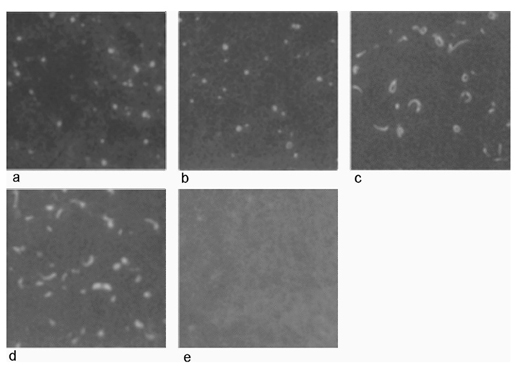Antigenic characterization of Anaplasma marginale isolates, by identifying conserved and variable epitopes of major surface proteins (MSP), is an important tool for vaccine development against this rickettsia. The B cell epitopes of A. marginale isolates from three microregions of the State of Pernambuco and one from the State of Mato Grosso do Sul, Brazil, were characterized by indirect fluorescent antibody technique (IFAT) and Western blot (WB) with 15 monoclonal antibodies (MAbs). The epitope recognized by MAb ANA22B1 (MSP-1a) was conserved by IFAT and WB (73-81 kDa). MSP-2 epitopes recognized by MAbs ANAO58A2 and ANAO70A2 were conserved by IFAT, while ANAO50A2 and ANA66A2 epitopes were polymorphic; in the WB, the MAbs ANAO50A2 and ANAO70A2 identified bands of 45 kDa only in the Pernambuco-Mata isolate. None of the isolates reacted with MAb ANAR75C2 (MSP-3). The MSP-4 epitope recognized by MAb ANAR76A1 was conserved by IFAT, as well as the MSP-5 epitope recognized by MAb ANAF16C1 by IFAT and WB (16 kDa). The MAbs ANAR17A6, ANAR83B3, ANAR94C1, ANAO24D5 and ANAR19A6 identified conserved epitopes by IFAT. MSP-1, MSP-2 and MSP-4, which previously showed partial protection in experimental trials, are also potential immunogens to be employed in Brazil, due to the B cell epitope conservation.
Anaplasma marginale; antigenic characterization; major surface protein; Brazil






